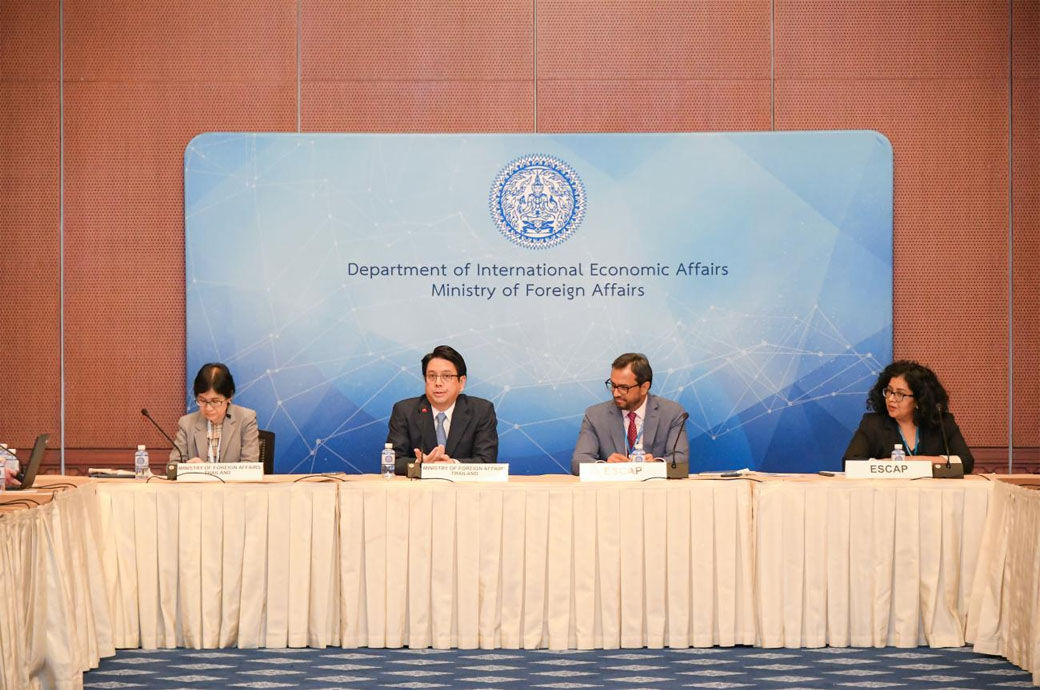Insights
- UN Economic and Social Commission for Asia and the Pacific (UNESCAP) has put forward a ten-point action plan to accelerate sustainable finance in Asia-Pacific.
- The region is not on track to meet the UN Sustainable Development Goals by 2030 nor achieve climate ambitions, with current financial requirements far exceeding available resources, UNESCAP noted.
Cultivating new climate finance partnerships and effective NDC financing strategies; commitments to net zero pledges for 2050 with credible transition pathways; and expansion and acceleration of concessional financing and risk-sharing by multilateral development banks (MDBs), bilateral development financial institutions and public development banks are part of a ten-point action plan put forward by the UN Economic and Social Commission for Asia and the Pacific (UNESCAP) to accelerate sustainable finance in the Asia-Pacific (APAC).
The Sharm-el-Sheikh Implementation Plan, agreed at the 27th Conference of the Parties of the United Nations Framework Convention on Climate Change (UNFCCC) in 2022 highlighted that the world will need between $4 trillion and $6 trillion per year to transition to a low-carbon economy.
For developing countries the financing gap to meet their Nationally Determined Contributions (NDC) is estimated at close to $6 trillion for the period 2023-2030. Urgent and systemic change is required to deliver funding at such a scale, UNESCAP noted.
UN Economic and Social Commission for Asia and the Pacific (UNESCAP) has put forward a ten-point action plan to accelerate sustainable finance in Asia-Pacific.
The region is not on track to meet the UN Sustainable Development Goals by 2030 nor achieve climate ambitions, with current financial requirements far exceeding available resources, UNESCAP noted.
The NDC Partnership brings together more than 200 members, including more than 120 countries and more than 80 institutions, to create and deliver on ambitious climate action that help achieve the Paris Agreement and the UN Sustainable Development Goals (SDGs).
The APAC region is not on track to meet the SDGs by 2030 nor achieve climate ambitions, with current financial requirements far exceeding available resources, UNESCAP noted in a recent report.
New climate finance partnerships should be developed through which governments, regulators, MDBs, and private finance commit to action around specific goals and contribute specific tasks in line with this shared goal, UNESCAP said.
Just Energy Transition Partnerships, which are led and owned by countries, provide a useful model for the region, especially if execution can be accelerated.
Effective NDC financing strategies should be developed that signal credible transition pathways with interim targets and clear resource mobilisation plans.
Policy coherence and capacities should be developed across key government ministries, ultimately reducing the costs of financing, UNESCAP suggested. Governments need to invest in both the effort and capacities for such coordination.
Decisive regulatory action is needed to shift capital in APAC towards the net zero transition as the region is home to significantly large pools of capital capable of bridging the gap in sustainable finance.
Investment in the capacities of financial personnel to assess climate risk, innovate green financial instruments, and supervise the transition path of the green economy should be undertaken along with investment in sectoral and project-based financial data.
The slow tendency of APAC banks to commit to net zero and transition their lending and investing portfolios with interim 2030 science-based targets is a serious brake on driving finance towards climate action in the region, UNESCAP noted.
Local-currency financing of energy transition projects as well as green technologies and other net-zero investments needs to be raised, the report added.
Fibre2Fashion News Desk (DS)
Disclaimer – All News/Articles items are subject to copyright and no article either in full or part may be reproduced in any form without permission from Fibre2Fashion Pvt. Ltd.
Credit:Source link



